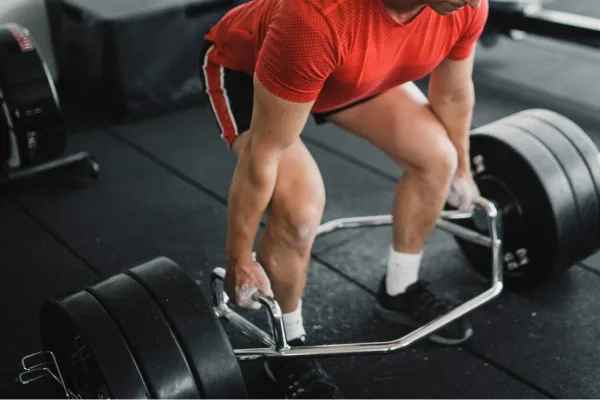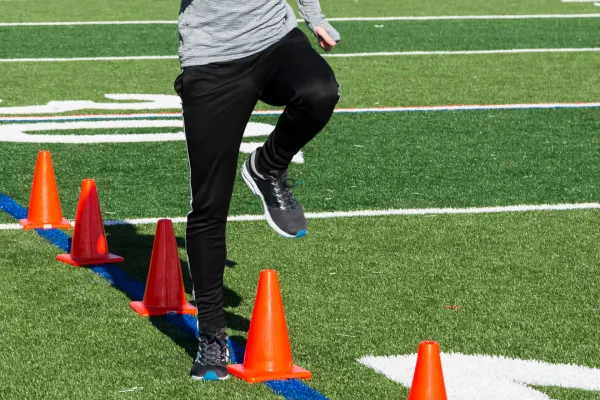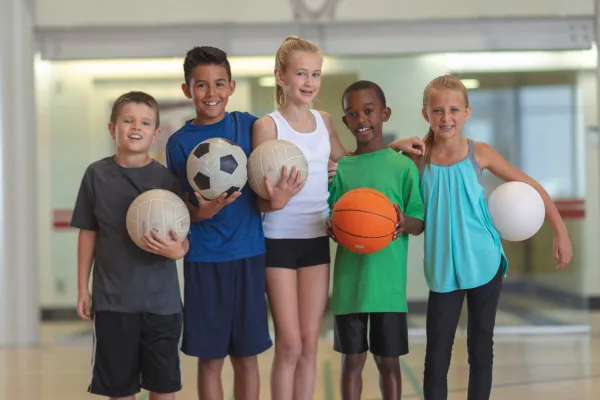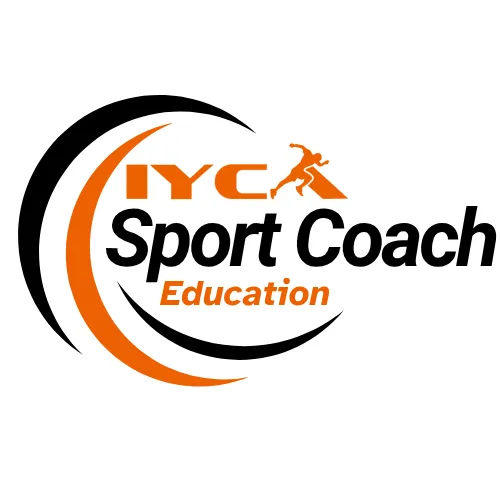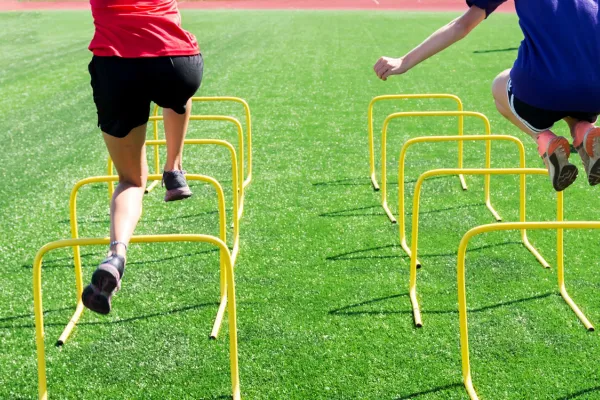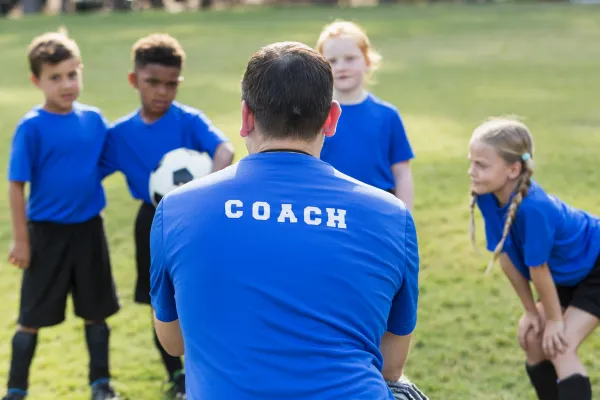
7 Habits of High Performing Coaches
Written by Julie Hatfield-Still, Brand Executive for the International Youth Coaching Association and President of Beyond The Game Alliance
Strong coaches build strong athletes.
That statement is more than a slogan- it’s a truth backed by experience and science. Coaching at a high level requires more than just designing workouts or teaching strategy. It’s about who the coach is and the habits they consistently live out.
Athletes don’t just absorb drills and lessons; they absorb energy, examples, and behaviors. That’s why the best coaches know their influence goes far beyond the field, court, mat, pool or weight room. They commit to habits that allow them to show up at their best, not only for their athletes but also for themselves.
Here are 7 habits of high-performing coaches that separate the good from the great.
1. They Prioritize Their Own Health & Well-Being
Coaches are notorious for putting everyone else first. Long days, late nights, skipped meals, and neglected workouts can become the norm. But the reality is this: this is massively detrimental to you and your athletes.
High-performing coaches treat their health as a leadership tool. They exercise regularly, fuel their bodies with good nutrition, and protect their sleep like a competitive advantage. They also understand the art of recovery—taking breaks, unplugging, and setting boundaries so they can show up fully charged.
When coaches model balance and well-being, athletes learn that sustainable performance is about more than grinding—it’s about caring for the body and mind that makes performance possible.
2. They Practice Inspired Comparison, Not Incompetent Comparison
In today’s world of highlight reels and constant social media feeds, comparison is unavoidable, and it’s normal.
Most people say that you shouldn’t compare, but I believe it’s human nature, and not to be shamed or avoided.. But there’s a critical difference in how high-performing coaches use comparison..
Unhealthy, incompetent comparison sounds like:
“I’ll never be as good as that coach.”
“Their program always wins—what’s the point?”
“I am not as qualified as they are.”
These mental attitudes drain energy and confidence. When we compare from a space of “less than”, we will almost always lose.
Instead, high-performing coaches practice inspired comparison:
“That coach runs an incredible program—what can I learn from them?”
“I admire how they handle their team. I wonder how I can adapt that to my athletes.”
“If they can, I can.”
Inspired comparison encourages coaches toward growth instead of defeat. It’s the difference between seeing others as competitors vs. collaborators in raising the bar for youth sports. When incompetent comparison says “I can’t because they can”, inspired comparison say’s “I can because they can”.
3. They Regulate Their Emotions at a High Level
A coach’s emotional state sets the tone for the entire team. Athletes are perceptive; they notice when a coach is stressed, frustrated, or quick to anger.
High-performing coaches aren’t emotionless robots- but they are emotionally regulated. They remain calm under pressure, recover quickly from setbacks, and don’t let frustration dictate their behavior. Instead of lashing out after a mistake, they use it as a teaching moment. Instead of crumbling under stress, they steady the ship.
This doesn’t just build trust, it builds resilience. Athletes learn from their coaches how to manage nerves, bounce back from losses, and perform under pressure.
4. They Communicate with Clarity and Purpose
Great coaches are great communicators. But this goes far beyond giving instructions or correcting form.
High-performing coaches:
Adapt their communication to the age and personality of the athlete.
Ask questions that spark reflection instead of always giving answers
Provide feedback that builds confidence while still challenging growth.
Most importantly, they listen-really listen. They create environments where athletes feel heard, valued, and safe to speak up. This type of communication builds stronger relationships and leads to more effective coaching.
5. They Commit to Continued Education & Expansion
High-performing coaches never “arrive.” They are lifelong learners, constantly seeking new strategies, science, and perspectives that sharpen their craft. For more information on this, check out The Rhythm Every Coach Should Implement But Most Don’t
That might look like:
Attending workshops and clinics.
Reading books on performance, psychology, or leadership.
Networking with other coaches to exchange ideas.
Seeking mentorship or even reverse mentorship (learning from younger coaches with fresh perspectives).
This commitment to growth prevents stagnation. It also models for athletes what it means to stay curious, adaptable, and hungry for improvement- qualities every athlete needs to thrive.
This habit isn’t just about consuming knowledge- it’s also about creating it. When we embrace the mindset of “as we teach, we learn,” we realize that committing to teach, share content, or create education around a topic can be one of the most powerful ways to deepen our own understanding. In many cases, the act of explaining a concept to others sharpens our clarity, reinforces our learning, and challenges us to grow in new directions.
6. They Build Cultures of Respect & Collaboration
Coaching isn’t just about developing athletes; it’s about shaping environments. The best coaches understand that the atmosphere they create can have just as much impact on an athlete’s growth as any drill or training plan. High-performing coaches intentionally foster cultures of respect where athletes feel safe, valued, and supported- not only as players, but as people.
Respect in this context flows both ways. It’s not only about athletes respecting the authority of a coach, but also about coaches showing respect for their athletes- their effort, their voices, and their unique experiences. When respect is mutual, trust deepens, and athletes are more likely to give their full commitment to the process.
Collaboration is another defining marker of strong coaching cultures. It goes beyond teamwork among players; it extends to assistant coaches, support staff, and even parents. When a coach actively brings others into the process, it creates a sense of shared ownership. The environment shifts from “coach versus everyone else” to a partnership where everyone works together toward the same goal. This sense of collaboration often expands into the wider community, strengthening the support system around the athletes.
In contrast, toxic environments built on fear, favoritism, or control erode athlete confidence and can stunt both performance and personal development. Athletes in those settings may play small, hold back, or lose the joy of the game altogether. Replacing those negative cultures with ones grounded in growth and belonging is one of the most important responsibilities of a coach.
When respect and collaboration are woven into the daily fabric of a program, the impact is powerful. Athletes become more engaged because they feel seen. They’re more motivated because they trust the process. And they’re more willing to push beyond their limits because they know they’re supported every step of the way. Ultimately, it’s this type of environment that allows athletes to thrive, not just in their sport, but in life.
7. They Practice Self-Reflection & Mental Agility
Ultimately, high-performing coaches recognize the importance of self-reflection.
They regularly pause to ask themselves questions like: What worked well this week? What could I do differently? What do my athletes need most right now? This habit of self-reflection keeps them honest and accountable, ensuring that growth is not just something they demand from their athletes but also something they model themselves.
But reflection alone isn’t enough. What truly separates high-performing coaches is mental agility- the ability to adapt, pivot, and change course when circumstances demand it. Instead of clinging to a rigid plan, they read the moment and respond.
This agility shows up in practical ways: they develop reset mechanisms to use when tensions run high, whether it’s a breathing exercise, a short pause before responding, or even calling a quick timeout to regroup. They also establish pre-performance routines, not only for athletes but for themselves, so they show up grounded, calm, and focused before every practice or game.
Preparedness is another hallmark of agility. High-performing coaches don’t just walk into practice with a plan; they anticipate adjustments. If the plan isn’t working, they pivot without losing momentum. If an athlete is struggling, they adapt the session to keep them engaged.
Their flexibility isn’t just mental; it translates into tangible changes in how they coach, communicate, and structure the environment.
By embracing mistakes as opportunities for growth rather than failures to fear, these coaches create space for experimentation and resilience. Their athletes see adaptability in action and, in turn, learn to embody it themselves. Ultimately, this combination of reflection, reset strategies, preparation, and adaptability ensures that both coaches and athletes thrive; even in the face of challenges.
In Summary: Habits That Outlast the Game
High performance in coaching isn’t about perfection; it’s about consistency. These habits, lived out day after day, shape not only the coach but also the athletes who look up to them.
The truth is, athletes rarely remember the day-to-day drills and plays. But they will remember the example set by their coach, the calm under pressure, the commitment to growth, the respect shown in every interaction.
If you’re a coach, consider this your challenge: pick one of these habits to lean into this week. Over time, small shifts compound into transformational growth; for you, and for the athletes you serve.
Because strong coaches really do build strong athletes.
Check out the Deep Dive
Ready to Lead with Confidence, Not Guesswork?
At the IYCA, we believe that coaching is a profession of growth—and high-performing coaches are built on consistent habits, not just good intentions. That’s why we provide practical, athlete-centered education to help coaches at every level develop the skills, systems, and confidence to lead with excellence.
Whether you’re working with youth athletes just learning the game or preparing high schoolers for the next level, the IYCA is here to help you build the habits that matter most, starting with education.
Explore our coaching resources and certification programs: iyca.org
Need help designing a Coach Development System for your school, club, or organization?
Schedule a free consultation—we’ll walk alongside you to create a model that empowers both coaches and athletes.
📧 Email: [email protected]
It’s time to raise the standard.
Coach Julie Hatfield-Still
About the Author:
Julie is an Author, CEO and Coach. She is the Brand Executive at the IYCA and the President & Founder of the Non-Profit Beyond The Game Alliance, which offers a full suite of workshops and support for teams and individual athletes. In addition to her work as a business consultant and coach of coaches, leaders, and entrepreneurs.
Julie is a Speed Development Specialist and Inner-Game Coach at the college, high school and youth levels.
Visit Julie’s Author Page
If this blog sparked reflection or affirmed your mission—don’t stop here.
Get certified with the International Youth Coaching Association (IYCA) and gain the tools, science, and strategies to confidently support long-term athlete development.
Whether you’re working with beginners or elite youth athletes, IYCA certifications & programs are designed to elevate your impact.
Learn more and get certified today:
Certifications
Certified Athletic Development Specialists (CADS)
Certified Speed & Agility Specialist (CSAS)
Youth Nutrition Specialist (YNS)
Youth Athletic Assessment Specialist (YAAS)
High School Strength & Conditioning Specialist (HSSCS)
Because the best coaches never stop learning, and the athletes you serve deserve your best.



